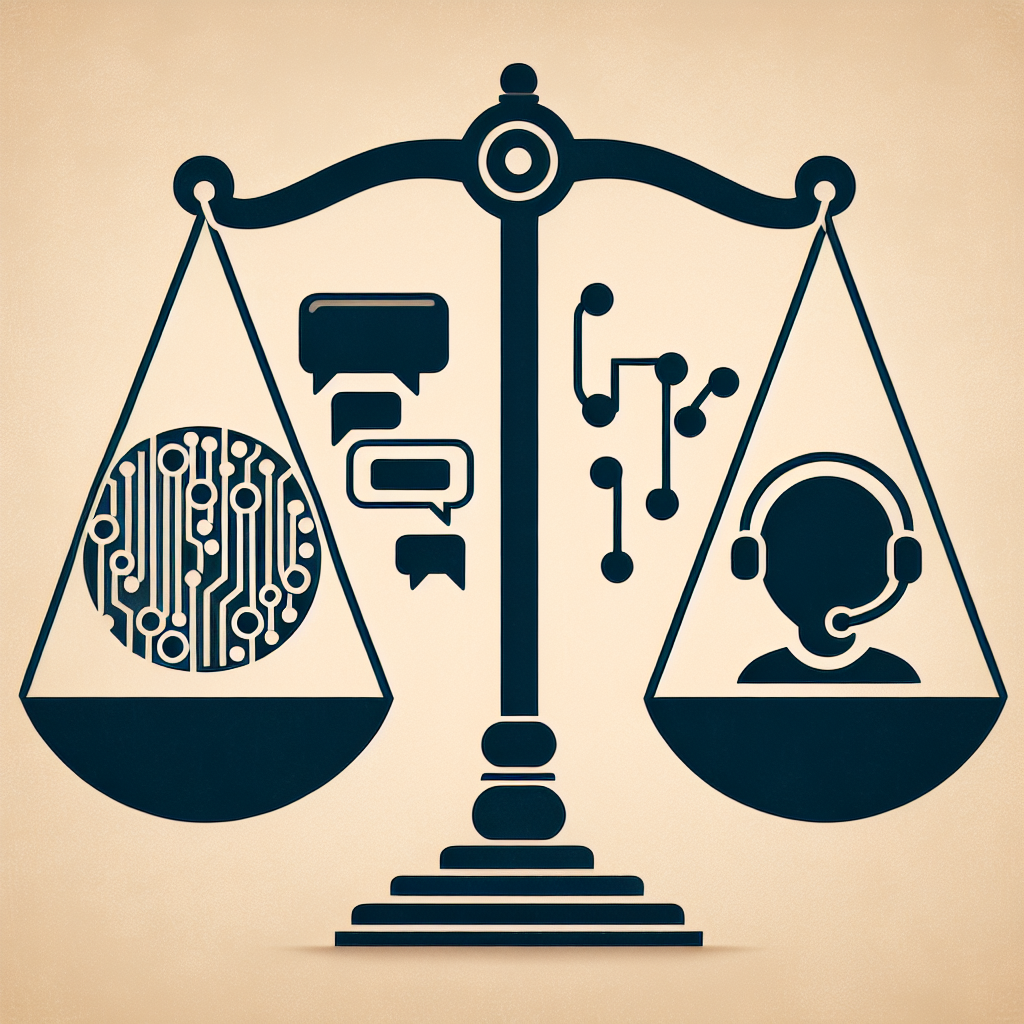Conversational AI vs. Traditional Customer Service: A Comparison
In recent years, the rise of conversational AI has revolutionized the way businesses interact with their customers. Conversational AI, also known as chatbots or virtual assistants, uses artificial intelligence to simulate human conversation and provide personalized customer service. This technology has quickly gained popularity due to its ability to provide instant responses, 24/7 availability, and cost-effective solutions. In this article, we will compare conversational AI with traditional customer service methods and explore the benefits and drawbacks of each.
Traditional Customer Service
Traditional customer service typically involves human representatives responding to customer inquiries through phone calls, emails, or in-person interactions. While this method has been effective in the past, it can be time-consuming, costly, and limited in its availability. Customers may have to wait in long queues or deal with representatives who may not always have the answers they need. Additionally, traditional customer service can be prone to human error and inconsistencies in responses.
Conversational AI
Conversational AI, on the other hand, uses advanced technology to interact with customers in a more efficient and personalized manner. Chatbots can be integrated into websites, apps, social media platforms, and messaging services to provide instant responses to customer inquiries. These AI-powered assistants can handle multiple conversations simultaneously, provide accurate and consistent information, and offer personalized recommendations based on customer data. Conversational AI can also be programmed to escalate inquiries to human representatives when necessary, ensuring a seamless customer experience.
Comparison
1. Availability and Response Time
One of the key advantages of conversational AI is its 24/7 availability and instant response time. Chatbots can handle customer inquiries at any time of the day, even during non-business hours. This can help businesses cater to customers in different time zones and provide solutions to urgent issues without delay. In contrast, traditional customer service may have limited operating hours, leading to longer response times and potential customer frustration.
2. Cost-Effectiveness
Conversational AI is a cost-effective solution for businesses looking to streamline their customer service operations. Chatbots can handle a high volume of inquiries simultaneously, reducing the need for a large customer support team. This can lead to significant cost savings for businesses while still providing efficient and personalized customer service. Traditional customer service, on the other hand, requires a larger workforce to handle customer inquiries, which can be more expensive in the long run.
3. Personalization
Conversational AI can offer personalized recommendations and solutions to customers based on their past interactions and preferences. Chatbots can analyze customer data in real-time to provide tailored responses and suggestions, leading to a more engaging and relevant customer experience. Traditional customer service may struggle to provide the same level of personalization, as human representatives may not always have access to customer data or the ability to analyze it quickly.
4. Scalability
Conversational AI is highly scalable and can handle an unlimited number of customer inquiries simultaneously. As businesses grow and expand, chatbots can easily adapt to the increasing volume of customer interactions without compromising the quality of service. In contrast, traditional customer service may struggle to keep up with growing demand, leading to longer wait times and decreased customer satisfaction.
5. Human Touch
While conversational AI can provide efficient and accurate responses to customer inquiries, it may lack the human touch and empathy that human representatives can offer. Some customers may prefer interacting with a real person who can understand their emotions and provide personalized support. Traditional customer service excels in building rapport and trust with customers through human interactions, which can be challenging to replicate with AI-powered assistants.
FAQs
Q: Can conversational AI completely replace traditional customer service?
A: While conversational AI can streamline customer service operations and provide efficient responses, it may not be able to completely replace human representatives in all situations. Some customers may still prefer interacting with a real person for complex or sensitive issues that require empathy and understanding. Businesses can benefit from using a combination of conversational AI and traditional customer service to provide a well-rounded customer experience.
Q: How secure is conversational AI in handling sensitive customer data?
A: Conversational AI platforms are designed to prioritize data security and privacy. Chatbots are built with encryption and authentication features to protect customer data from unauthorized access or breaches. Businesses can also implement strict data protection policies and compliance measures to ensure the security of customer information when using conversational AI.
Q: What are the limitations of conversational AI in customer service?
A: While conversational AI offers many benefits, it may have limitations in handling complex or emotional customer inquiries that require human empathy and understanding. Chatbots may struggle to interpret sarcasm, slang, or nuanced language, leading to miscommunication with customers. Businesses should carefully design and train chatbots to handle a wide range of customer interactions effectively.
Q: How can businesses measure the effectiveness of conversational AI in customer service?
A: Businesses can track key performance indicators (KPIs) such as response time, resolution rate, customer satisfaction, and cost savings to measure the effectiveness of conversational AI in customer service. Analyzing customer feedback, monitoring chatbot interactions, and conducting regular performance reviews can help businesses optimize their AI-powered assistants for better results.
In conclusion, conversational AI offers a modern and efficient approach to customer service, providing instant responses, personalized recommendations, and cost-effective solutions. While traditional customer service methods have their strengths in building rapport and empathy with customers, conversational AI can enhance the overall customer experience and streamline business operations. Businesses can benefit from leveraging both conversational AI and traditional customer service to meet the diverse needs of their customers and deliver exceptional service.

